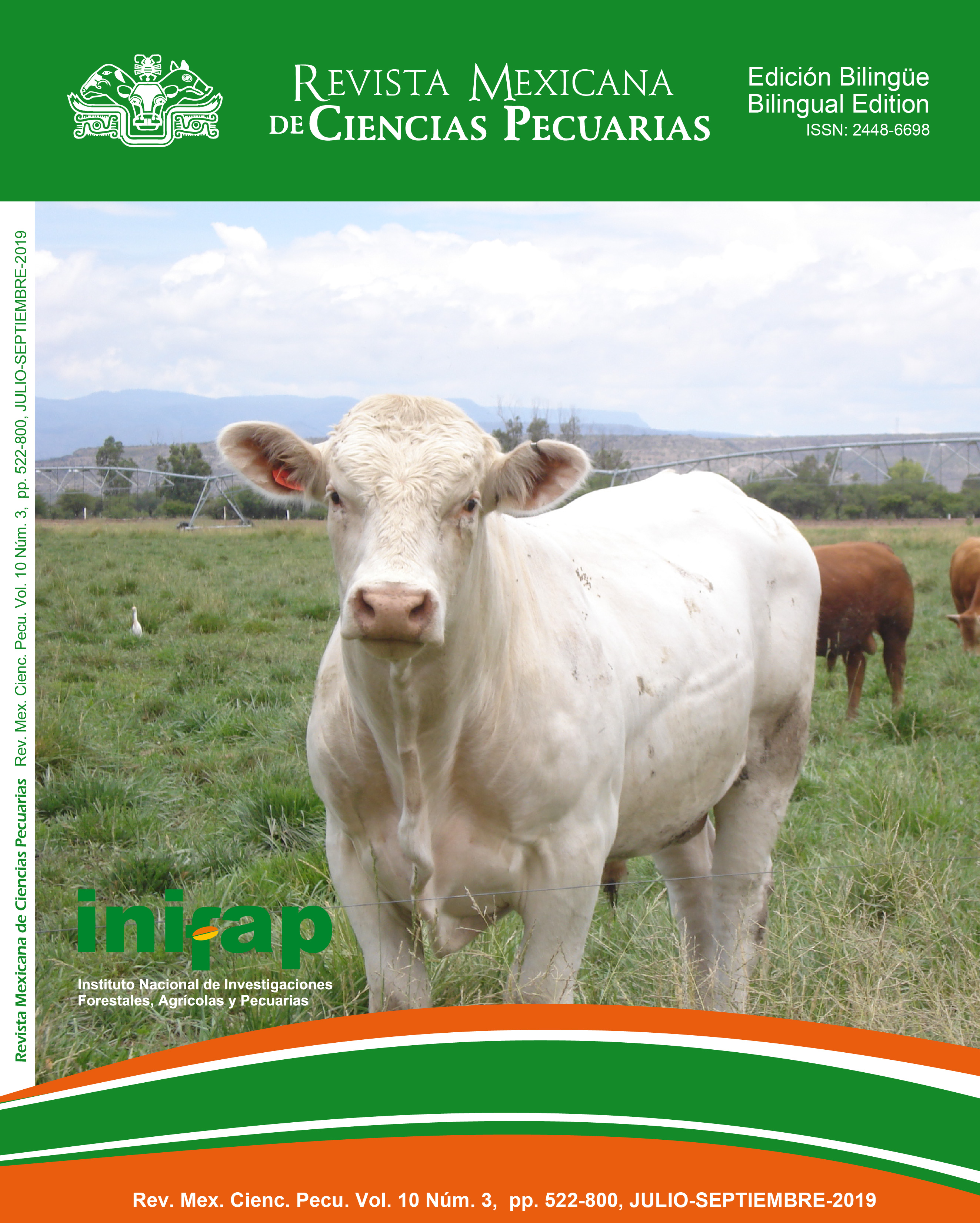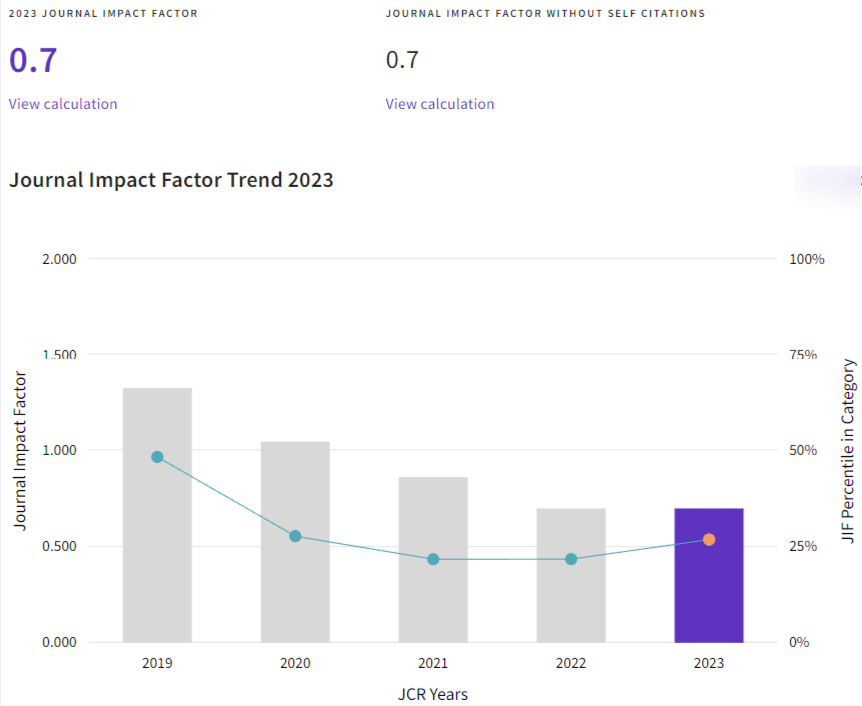In vitro acaricide activity of extracts from three Leucaena spp. genotypes versus Rhipicephalus microplus
DOI:
https://doi.org/10.22319/rmcp.v10i3.4822Keywords:
Ectoparasites, Secondary metabolites, Vegetal extracts, Subhumid tropicsAbstract
The tick Rhipicephalus microplus is known to develop resistance against some commercial acaracides, driving a search for natural alternatives. An evaluation was done of the acaricide activity against adult and larval R. microplus of ethanol extracts from three Leucaena spp. genotypes: L. leucocephala (Lam.) de Wit (Native); L. leucocephala (Cunningham); and L. Leucocephala x L. padilla (KX2). Larval immersion and adult immersion tests were used to evaluate acaricide activity. Secondary metabolite profiles of the three genotypes were generated using analytical chromatographic plates. Against the larvae, the 50% extract concentration exhibited 91.68% mortality for the Cunningham genotype, 82.00% for the KX2 and 54.06% for the Native. The Native genotype extract was most effective against adults with a 50% mortality at a 20% concentration. Flavonoids and terpenes were identified in all three genotypes and are probably responsible for their acaricide activity. The Leucaena spp. Cunningham and KX2 extracts were effective against R. microplus larvae, but further research is needed to identify the metabolites that provide this acaricide activity, be it individually or synergistically.Downloads
Downloads
Published
How to Cite
-
Abstract1082
-
PDF (Español)427
-
PDF213
-
Texto Completo (Español)570
Issue
Section
License

This work is licensed under a Creative Commons Attribution-NonCommercial-ShareAlike 4.0 International License.





